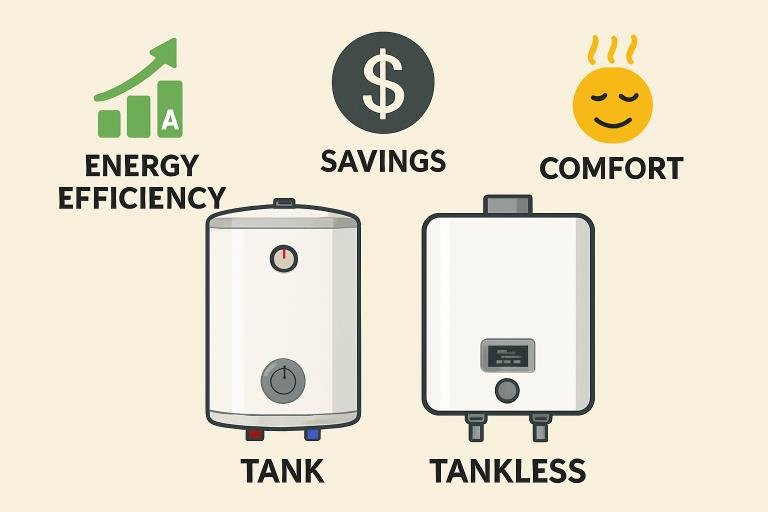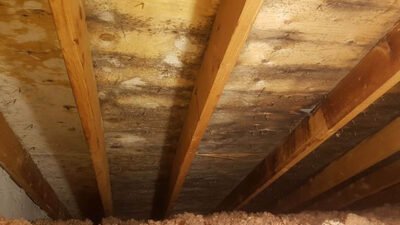Key Takeaways
- Efficient water heater repair & installation can improve energy savings and system longevity.
- Recognizing repair warning signs early helps prevent expensive emergencies.
- Choosing the right water heater type can significantly impact household utility bills.
- DIY fixes can be tempting, but professional help is often safer and more reliable.
- Regular maintenance and informed choices can keep hot water flowing all year.
Introduction
Ensuring your home has reliable, efficient hot water significantly impacts your comfort and reduces monthly expenses. Whether facing a system breakdown or weighing the benefits of upgrading, making informed choices about water heater repair and installation is essential. Professional Salt Lake City water heater repair & installation services can handle everything from emergency fixes to seamless installation of advanced systems, providing peace of mind and long-term savings.
Many homeowners are tempted to delay service calls or attempt repairs themselves, but understanding when and how to get help is the key to avoiding costly water damage and ensuring energy-efficient performance. Before deciding between repair and replacement, it’s essential to spot red flags, compare water heater types, and recognize what the installation process entails.
Common Signs Your Water Heater Needs Attention
Water heaters rarely fail without warning. Being proactive can spare you from unexpected cold showers and property damage. Watch for unusual noises—such as rumbling or popping—which may signal sediment buildup in the tank. If your hot water suddenly becomes rusty, discolored, or has a metallic taste, corrosion inside the tank might be to blame. Water puddling around the base of your unit hints at possible leaks, often stemming from faulty valves or cracks that call for immediate attention.
Fluctuating water temperatures or a dramatic drop in hot water supply indicate your system struggles. Addressing these issues quickly helps prevent major breakdowns and significantly extends your water heater’s lifespan. Timely repairs aren’t just about comfort and safety; according to the U.S. Department of Energy, water heating accounts for about 20% of the energy usage in homes—meaning an inefficient heater could be silently draining your wallet.
How to Choose the Right Water Heater for Your Home
Selecting a new water heater involves weighing several key options. Traditional tank heaters store and pre-heat gallons of water, making them a popular and cost-effective solution for families with consistent usage. Tankless models—or on-demand heaters—heat water as needed, offering increased efficiency and a space-saving design, though their upfront costs can be higher. Hybrid water heaters blend aspects of both, often using heat pump technology to reduce energy consumption further.
Think about your household’s hot water habits, the fuels available in your area (electric, natural gas, propane), space limitations, and your long-term budget for utility and maintenance costs. For a deeper dive into model comparisons and buying guidance based on real-world user reviews, check resources such as Wirecutter’s water heater recommendations.
The Installation Process: What to Expect
Replacing or installing a water heater isn’t a minor task and usually requires careful planning. The process typically begins with removing the old unit, checking and upgrading plumbing connections, and installing the new heater according to manufacturer guidelines. Local building codes often require permits and may dictate specific safety features, such as gas units’ seismic strapping or venting requirements.
Certified installers will ensure your new water heater is leveled, securely anchored, and tested for leaks and proper function. The timeline for a standard installation can range from two to six hours, depending on the complexity of your setup and the need for code-related updates.
Should You Attempt Repairs or Call a Professional?
While replacing a thermostat or adjusting the temperature dial may seem manageable, most water heater repairs and all new installations should be left to licensed experts. DIY efforts risk ignoring critical safety hazards—gas leaks, improper venting, and high-voltage electrical mishaps. Certified plumbers offer the technical know-how and insurance protection that comes with professional service.
For example, a homeowner who attempted to fix a leaking pressure relief valve inadvertently caused flooding and costly drywall repairs. In contrast, a professional quickly diagnosed the corroded valve and replaced faulty components without further incident, saving time and limiting the potential for property damage.
Simple Maintenance Tips to Extend Water Heater Life
Basic Maintenance Steps for Homeowners
Regular care boosts water heater efficiency and staves off breakdowns. Annually flushing your tank helps remove sediment, which can lead to overheating and tank failure. Checking the anode rod every two to three years prevents rusting by ensuring the protective rod is intact. Inspecting valves and connections—especially the pressure relief valve—detects minor leaks before they cause bigger problems.
Maintenance Scheduling and Cost Savings
Make a habit of reviewing your water heater’s performance each autumn before winter demand spikes. Proactive care doesn’t just keep the hot water flowing; it can add years to your unit’s lifespan and lower the likelihood of emergencies requiring expensive, after-hours repairs.
Energy Efficiency and Cost-Saving Solutions
Simple changes can yield substantial energy savings. Lower your water heater’s thermostat to 120°F to reduce standby losses and prevent scalding. Insulating hot water pipes conserves heat on its way to your taps. Adding a tank insulation blanket curbs heat loss if your heater is older, especially in unheated basements or garages.
Consider upgrading to an ENERGY STAR–rated system to improve efficiency and potentially qualify for manufacturer, utility, or government rebates. Visit the ENERGY STAR website for up-to-date information on qualifying models and incentives available in your area.
Current Trends in Water Heating Technology
Modern water heaters are equipped with smart controls, Wi-Fi compatibility, and leak detection—enabling remote monitoring and adjustments through your smartphone. Heat pump water heaters and solar-assisted systems appeal to eco-conscious homeowners aiming to reduce their carbon footprint. These technologies offer significant savings over time by maximizing renewable energy sources and sophisticated controls, ensuring hot water is always available without unnecessary waste.
Developers are also rolling out compact, high-efficiency models that integrate seamlessly with smart home ecosystems, driving both convenience and sustainability for today’s buyers.
FAQs: Smart Decisions for Hot Water at Home
What should I do if my water heater leaks?
Immediately turn off the power source and water supply to the unit. Contain the leak and contact a certified technician to diagnose the cause. Leaks can escalate rapidly, so fast action is key.
How do I know whether to repair or replace my heater?
If your heater is over 10 years old, has repeated issues, or requires expensive repairs, replacement is often more cost-effective. Newer units provide improved safety, efficiency, and reliability.
When is it safe to troubleshoot my water heater myself?
Simple solutions, like relighting a pilot light or resetting a tripped breaker, are safe for most homeowners. However, any work involving gas lines, water supply, or electrical connections should be handled by licensed professionals.
How often should I schedule professional maintenance?
Yearly inspections help catch potential problems early and ensure your unit operates at peak efficiency. Routine servicing, including tank draining, anode rod checks, and safety valve testing, keeps your system running well into the future.
Making informed choices about repair or installation ensures comfort, efficiency, and long-term savings. Homeowners can avoid unnecessary stress by weighing costs, energy efficiency, and professional guidance while maximizing performance. Careful planning protects your investment and guarantees reliable hot water for years to come.



